Peter Pan
None
Mrs. Darling was married in white, and at first she kept the books perfectly, almost gleefully, as if it were a game, not so much as a Brussels sprout was missing; but by and by whole cauliflowers dropped out, and instead of them there were pictures of babies without faces. She drew them when she should have been totting up. They were Mrs. Darling's guesses.




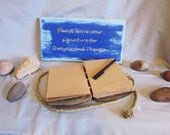

Children have the strangest adventures without being troubled by them. For instance, they may remember to mention, a week after the event happened, that when they were in the wood they had met their dead father and had a game with him. It was in this casual way that Wendy one morning made a disquieting revelation. Some leaves of a tree had been found on the nursery floor, which certainly were not there when the children went to bed, and Mrs. Darling was puzzling over them when Wendy said with a tolerant smile:






Mrs. Darling screamed, and, as if in answer to a bell, the door opened, and Nana entered, returned from her evening out. She growled and sprang at the boy, who leapt lightly through the window. Again Mrs. Darling screamed, this time in distress for him, for she thought he was killed, and she ran down into the street to look for his little body, but it was not there; and she looked up, and in the black night she could see nothing but what she thought was a shooting star.






Then Mrs. Darling had come in, wearing her white evening-gown. She had dressed early because Wendy so loved to see her in her evening-gown, with the necklace George had given her. She was wearing Wendy's bracelet on her arm; she had asked for the loan of it. Wendy loved to lend her bracelet to her mother.



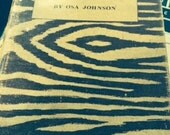


Nana wagged her tail, ran to the medicine, and began lapping it. Then she gave Mr. Darling such a look, not an angry look: she showed him the great red tear that makes us so sorry for noble dogs, and crept into her kennel.






In the old days at home the Neverland had always begun to look a little dark and threatening by bedtime. Then unexplored patches arose in it and spread, black shadows moved about in them, the roar of the beasts of prey was quite different now, and above all, you lost the certainty that you would win. You were quite glad that the night-lights were on. You even liked Nana to say that this was just the mantelpiece over here, and that the Neverland was all make-believe.






In the black topper the light was completely hidden, and they flew on in silence. It was the stillest silence they had ever known, broken once by a distant lapping, which Peter explained was the wild beasts drinking at the ford, and again by a rasping sound that might have been the branches of trees rubbing together, but he said it was the redskins sharpening their knives.






A more villainous-looking lot never hung in a row on Execution dock. Here, a little in advance, ever and again with his head to the ground listening, his great arms bare, pieces of eight in his ears as ornaments, is the handsome Italian Cecco, who cut his name in letters of blood on the back of the governor of the prison at Gao. That gigantic black behind him has had many names since he dropped the one with which dusky mothers still terrify their children on the banks of the Guadjo-mo. Here is Bill Jukes, every inch of him tattooed, the same Bill Jukes who got six dozen on the WALRUS from Flint before he would drop the bag of moidores [Portuguese gold pieces]; and Cookson, said to be Black Murphy's brother (but this was never proved), and Gentleman Starkey, once an usher in a public school and still dainty in his ways of killing; and Skylights (Morgan's Skylights); and the Irish bo'sun Smee, an oddly genial man who stabbed, so to speak, without offence, and was the only Non-conformist in Hook's crew; and Noodler, whose hands were fixed on backwards; and Robt. Mullins and Alf Mason and many another ruffian long known and feared on the Spanish Main.






In the midst of them, the blackest and largest in that dark setting, reclined James Hook, or as he wrote himself, Jas. Hook, of whom it is said he was the only man that the Sea-Cook feared. He lay at his ease in a rough chariot drawn and propelled by his men, and instead of a right hand he had the iron hook with which ever and anon he encouraged them to increase their pace. As dogs this terrible man treated and addressed them, and as dogs they obeyed him. In person he was cadaverous [dead looking] and blackavized [dark faced], and his hair was dressed in long curls, which at a little distance looked like black candles, and gave a singularly threatening expression to his handsome countenance. His eyes were of the blue of the forget-me-not, and of a profound melancholy, save when he was plunging his hook into you, at which time two red spots appeared in them and lit them up horribly. In manner, something of the grand seigneur still clung to him, so that he even ripped you up with an air, and I have been told that he was a RACONTEUR [storyteller] of repute. He was never more sinister than when he was most polite, which is probably the truest test of breeding; and the elegance of his diction, even when he was swearing, no less than the distinction of his demeanour, showed him one of a different cast from his crew. A man of indomitable courage, it was said that the only thing he shied at was the sight of his own blood, which was thick and of an unusual colour. In dress he somewhat aped the attire associated with the name of Charles II, having heard it said in some earlier period of his career that he bore a strange resemblance to the ill-fated Stuarts; and in his mouth he had a holder of his own contrivance which enabled him to smoke two cigars at once. But undoubtedly the grimmest part of him was his iron claw.






As the pirates advanced, the quick eye of Starkey sighted Nibs disappearing through the wood, and at once his pistol flashed out. But an iron claw gripped his shoulder.






Now for the first time we hear the voice of Hook. It was a black voice. "Put back that pistol first," it said threateningly.






"To return to the ship," Hook replied slowly through his teeth, "and cook a large rich cake of a jolly thickness with green sugar on it. There can be but one room below, for there is but one chimney. The silly moles had not the sense to see that they did not need a door apiece. That shows they have no mother. We will leave the cake on the shore of the Mermaids' Lagoon. These boys are always swimming about there, playing with the mermaids. They will find the cake and they will gobble it up, because, having no mother, they don't know how dangerous 'tis to eat rich damp cake." He burst into laughter, not hollow laughter now, but honest laughter. "Aha, they will die."






"I have seen a wonderfuller thing," he cried, as they gathered round him eagerly. "A great white bird. It is flying this way."



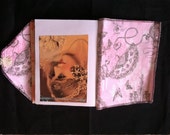


Overhead Tinker Bell shouted "Silly ass!" and darted into hiding. The others did not hear her. They had crowded round Wendy, and as they looked a terrible silence fell upon the wood. If Wendy's heart had been beating they would all have heard it.






Tootles' face was very white, but there was a dignity about him now that had never been there before.






In the meantime the wood had been alive with the sound of axes; almost everything needed for a cosy dwelling already lay at Wendy's feet.






They gurgled with joy at this, for by the greatest good luck the branches they had brought were sticky with red sap, and all the ground was carpeted with moss. As they rattled up the little house they broke into song themselves:






With a blow of their fists they made windows, and large yellow leaves were the blinds. But roses—?






He knocked politely, and now the wood was as still as the children, not a sound to be heard except from Tinker Bell, who was watching from a branch and openly sneering.






As time wore on did she think much about the beloved parents she had left behind her? This is a difficult question, because it is quite impossible to say how time does wear on in the Neverland, where it is calculated by moons and suns, and there are ever so many more of them than on the mainland. But I am afraid that Wendy did not really worry about her father and mother; she was absolutely confident that they would always keep the window open for her to fly back by, and this gave her complete ease of mind. What did disturb her at times was that John remembered his parents vaguely only, as people he had once known, while Michael was quite willing to believe that she was really his mother. These things scared her a little, and nobly anxious to do her duty, she tried to fix the old life in their minds by setting them examination papers on it, as like as possible to the ones she used to do at school. The other boys thought this awfully interesting, and insisted on joining, and they made slates for themselves, and sat round the table, writing and thinking hard about the questions she had written on another slate and passed round. They were the most ordinary questions—"What was the colour of Mother's eyes? Which was taller, Father or Mother? Was Mother blonde or brunette? Answer all three questions if possible." "(A) Write an essay of not less than 40 words on How I spent my last Holidays, or The Characters of Father and Mother compared. Only one of these to be attempted." Or "(1) Describe Mother's laugh; (2) Describe Father's laugh; (3) Describe Mother's Party Dress; (4) Describe the Kennel and its Inmate."






"Brimstone and gall," thundered Hook, "what cozening [cheating] is going on here!" His face had gone black with rage, but he saw that they believed their words, and he was startled. "Lads," he said, shaking a little, "I gave no such order."






A few moments afterwards the other boys saw Hook in the water striking wildly for the ship; no elation on the pestilent face now, only white fear, for the crocodile was in dogged pursuit of him. On ordinary occasions the boys would have swum alongside cheering; but now they were uneasy, for they had lost both Peter and Wendy, and were scouring the lagoon for them, calling them by name. They found the dinghy and went home in it, shouting "Peter, Wendy" as they went, but no answer came save mocking laughter from the mermaids. "They must be swimming back or flying," the boys concluded. They were not very anxious, because they had such faith in Peter. They chuckled, boylike, because they would be late for bed; and it was all mother Wendy's fault!






Then at last he understood, and clutched the nest and waved his thanks to the bird as she fluttered overhead. It was not to receive his thanks, however, that she hung there in the sky; it was not even to watch him get into the nest; it was to see what he did with her eggs.






There were two large white eggs, and Peter lifted them up and reflected. The bird covered her face with her wings, so as not to see the last of them; but she could not help peeping between the feathers.






They called Peter the Great White Father, prostrating themselves [lying down] before him; and he liked this tremendously, so that it was not really good for him.



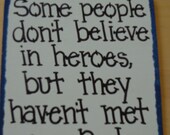
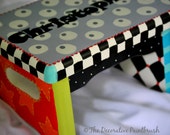

"The great white father," he would say to them in a very lordly manner, as they grovelled at his feet, "is glad to see the Piccaninny warriors protecting his wigwam from the pirates."






"I wish he had been a white rat," said Nibs.






"White rats," cried Nibs, inspired.



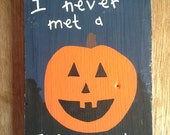


"Wendy," he said, striding up and down, "I have asked the redskins to guide you through the wood, as flying tires you so."



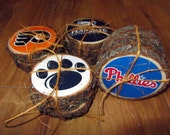


The pirate attack had been a complete surprise: a sure proof that the unscrupulous Hook had conducted it improperly, for to surprise redskins fairly is beyond the wit of the white man.






By all the unwritten laws of savage warfare it is always the redskin who attacks, and with the wiliness of his race he does it just before the dawn, at which time he knows the courage of the whites to be at its lowest ebb. The white men have in the meantime made a rude stockade on the summit of yonder undulating ground, at the foot of which a stream runs, for it is destruction to be too far from water. There they await the onslaught, the inexperienced ones clutching their revolvers and treading on twigs, but the old hands sleeping tranquilly until just before the dawn. Through the long black night the savage scouts wriggle, snake-like, among the grass without stirring a blade. The brushwood closes behind them, as silently as sand into which a mole has dived. Not a sound is to be heard, save when they give vent to a wonderful imitation of the lonely call of the coyote. The cry is answered by other braves; and some of them do it even better than the coyotes, who are not very good at it. So the chill hours wear on, and the long suspense is horribly trying to the paleface who has to live through it for the first time; but to the trained hand those ghastly calls and still ghastlier silences are but an intimation of how the night is marching.




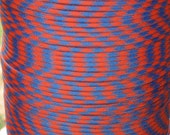

Around the brave Tiger Lily were a dozen of her stoutest warriors, and they suddenly saw the perfidious pirates bearing down upon them. Fell from their eyes then the film through which they had looked at victory. No more would they torture at the stake. For them the happy hunting-grounds was now. They knew it; but as their father's sons they acquitted themselves. Even then they had time to gather in a phalanx [dense formation] that would have been hard to break had they risen quickly, but this they were forbidden to do by the traditions of their race. It is written that the noble savage must never express surprise in the presence of the white. Thus terrible as the sudden appearance of the pirates must have been to them, they remained stationary for a moment, not a muscle moving; as if the foe had come by invitation. Then, indeed, the tradition gallantly upheld, they seized their weapons, and the air was torn with the war-cry; but it was now too late.






The doomed children answered with a cheer that was music to the black hearts above, and almost immediately they repeated their good-byes to Peter. This puzzled the pirates, but all their other feelings were swallowed by a base delight that the enemy were about to come up the trees. They smirked at each other and rubbed their hands. Rapidly and silently Hook gave his orders: one man to each tree, and the others to arrange themselves in a line two yards apart.






The more quickly this horror is disposed of the better. The first to emerge from his tree was Curly. He rose out of it into the arms of Cecco, who flung him to Smee, who flung him to Starkey, who flung him to Bill Jukes, who flung him to Noodler, and so he was tossed from one to another till he fell at the feet of the black pirate. All the boys were plucked from their trees in this ruthless manner; and several of them were in the air at a time, like bales of goods flung from hand to hand.






They were tied to prevent their flying away, doubled up with their knees close to their ears; and for the trussing of them the black pirate had cut a rope into nine equal pieces. All went well until Slightly's turn came, when he was found to be like those irritating parcels that use up all the string in going round and leave no tags [ends] with which to tie a knot. The pirates kicked him in their rage, just as you kick the parcel (though in fairness you should kick the string); and strange to say it was Hook who told them to belay their violence. His lip was curled with malicious triumph. While his dogs were merely sweating because every time they tried to pack the unhappy lad tight in one part he bulged out in another, Hook's master mind had gone far beneath Slightly's surface, probing not for effects but for causes; and his exultation showed that he had found them. Slightly, white to the gills, knew that Hook had surprised [discovered] his secret, which was this, that no boy so blown out could use a tree wherein an average man need stick. Poor Slightly, most wretched of all the children now, for he was in a panic about Peter, bitterly regretted what he had done. Madly addicted to the drinking of water when he was hot, he had swelled in consequence to his present girth, and instead of reducing himself to fit his tree he had, unknown to the others, whittled his tree to make it fit him.






How to convey them? Hunched up in their ropes they might indeed be rolled down hill like barrels, but most of the way lay through a morass. Again Hook's genius surmounted difficulties. He indicated that the little house must be used as a conveyance. The children were flung into it, four stout pirates raised it on their shoulders, the others fell in behind, and singing the hateful pirate chorus the strange procession set off through the wood. I don't know whether any of the children were crying; if so, the singing drowned the sound; but as the little house disappeared in the forest, a brave though tiny jet of smoke issued from its chimney as if defying Hook.






But what was that? The red in his eye had caught sight of Peter's medicine standing on a ledge within easy reach. He fathomed what it was straightaway, and immediately knew that the sleeper was in his power.






Lest he should be taken alive, Hook always carried about his person a dreadful drug, blended by himself of all the death-dealing rings that had come into his possession. These he had boiled down into a yellow liquid quite unknown to science, which was probably the most virulent poison in existence.






"No!" shrieked Tinker Bell, who had heard Hook mutter about his deed as he sped through the forest.






There was no other course but to press forward in redskin fashion, at which happily he was an adept [expert]. But in what direction, for he could not be sure that the children had been taken to the ship? A light fall of snow had obliterated all footmarks; and a deathly silence pervaded the island, as if for a space Nature stood still in horror of the recent carnage. He had taught the children something of the forest lore that he had himself learned from Tiger Lily and Tinker Bell, and knew that in their dire hour they were not likely to forget it. Slightly, if he had an opportunity, would blaze [cut a mark in] the trees, for instance, Curly would drop seeds, and Wendy would leave her handkerchief at some important place. The morning was needed to search for such guidance, and he could not wait. The upper world had called him, but would give no help.






One green light squinting over Kidd's Creek, which is near the mouth of the pirate river, marked where the brig, the JOLLY ROGER, lay, low in the water; a rakish-looking [speedy-looking] craft foul to the hull, every beam in her detestable, like ground strewn with mangled feathers. She was the cannibal of the seas, and scarce needed that watchful eye, for she floated immune in the horror of her name.






"I once thought of calling myself Red-handed Jack," he said diffidently.






They were only boys, and they went white as they saw Jukes and Cecco preparing the fatal plank. But they tried to look brave when Wendy was brought up.






"The cabin's as black as a pit," Cecco said, almost gibbering, "but there is something terrible in there: the thing you heard crowing."






Starkey looked round for help, but all deserted him. As he backed up Hook advanced, and now the red spark was in his eye. With a despairing scream the pirate leapt upon Long Tom and precipitated himself into the sea.






It need not be said who was the captain. Nibs and John were first and second mate. There was a woman aboard. The rest were tars [sailors] before the mast, and lived in the fo'c'sle. Peter had already lashed himself to the wheel; but he piped all hands and delivered a short address to them; said he hoped they would do their duty like gallant hearties, but that he knew they were the scum of Rio and the Gold Coast, and if they snapped at him he would tear them. The bluff strident words struck the note sailors understood, and they cheered him lustily. Then a few sharp orders were given, and they turned the ship round, and nosed her for the mainland.






"There are always a lot of young ones," explained Wendy, who was now quite an authority, "because you see when a new baby laughs for the first time a new fairy is born, and as there are always new babies there are always new fairies. They live in nests on the tops of trees; and the mauve ones are boys and the white ones are girls, and the blue ones are just little sillies who are not sure what they are."






Wendy was married in white with a pink sash. It is strange to think that Peter did not alight in the church and forbid the banns [formal announcement of a marriage].






"Hullo, Wendy," he said, not noticing any difference, for he was thinking chiefly of himself; and in the dim light her white dress might have been the nightgown in which he had seen her first.



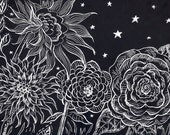


Of course in the end Wendy let them fly away together. Our last glimpse of her shows her at the window, watching them receding into the sky until they were as small as stars.



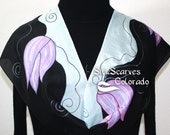
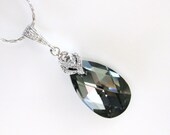

As you look at Wendy, you may see her hair becoming white, and her figure little again, for all this happened long ago. Jane is now a common grown-up, with a daughter called Margaret; and every spring cleaning time, except when he forgets, Peter comes for Margaret and takes her to the Neverland, where she tells him stories about himself, to which he listens eagerly. When Margaret grows up she will have a daughter, who is to be Peter's mother in turn; and thus it will go on, so long as children are gay and innocent and heartless.





